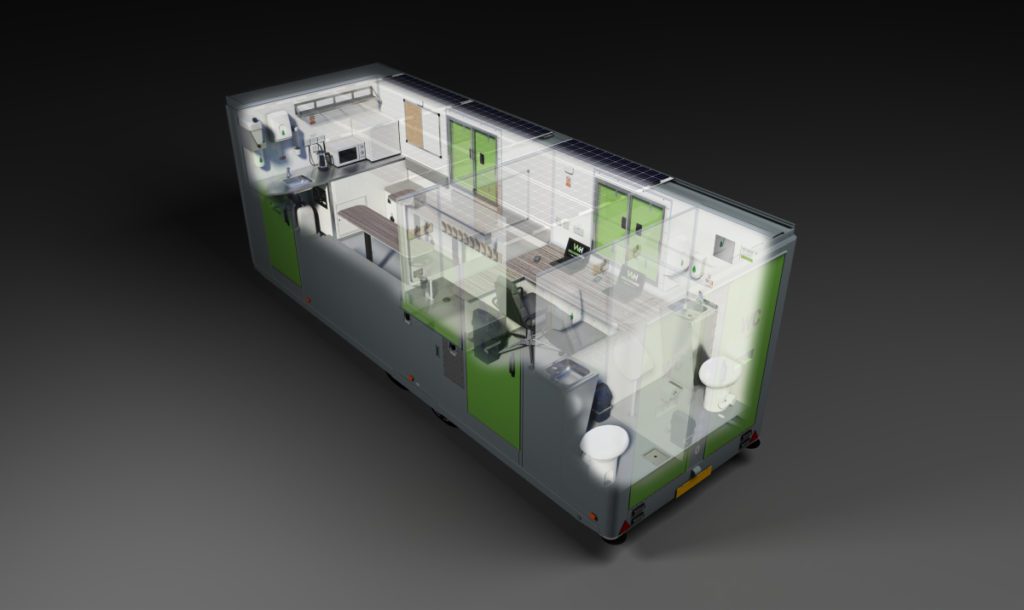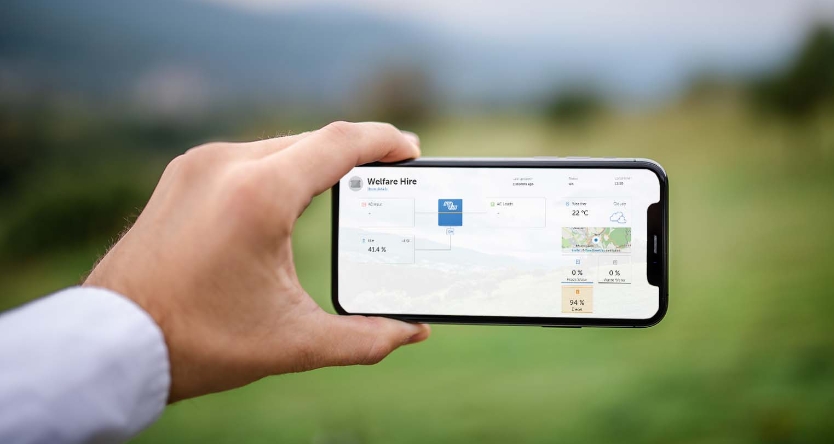Three Ways Welfare Hire Can Help You Become More Environmentally Friendly
Blog-May 27, 2022
From tough climate change targets to increasing pressure to demonstrate ESG credentials, the case for a more environmentally conscious approach to construction is clear.
Our research has shown that good ESG practices result in better operational performance. And companies can expect an average internal rate of return of 27-80% on their carbon saving investments.
But for many businesses, it isn’t clear how to make this the switch to greener alternatives.
The construction industry is currently responsible for 40% of the UK’s carbon emissions¹, and many widely touted solutions, such as circular production, require a comprehensive overhaul of existing practices.
In this article, we demonstrate how much smaller changes can have a powerful effect on businesses’ overall environmental impact – by exploring three key benefits of our innovative Mobile Welfare Units.

1. Reduce emissions
Our welfare units and lighting units operate on hybrid power, enabling them to reduce emissions by as much as 90% compared to other products on the market. This is achieved by making use of solar power and more environmentally friendly lithium batteries.
Across even a relatively small fleet, the result is an enormous cumulative reduction in overall emissions. And if you have a fleet of 100 vehicles in use, that reduction could net to the equivalent of planting 2.2 million trees.
For businesses struggling with fuel costs, this provides an additional benefit. By radically reducing the amount of fuel necessary to power your welfare units, you can mitigate your reliance on highly volatile fuel markets – and protect your bottom line.

2. Avoid unnecessary servicing
On the average construction site, simply servicing a fleet of vehicles has a large environmental cost. Why? Because transporting vehicles to and from site produces a high volume of site externalities and extra emissions.
Much of this servicing is done to refill and empty onsite chemical WC facilities. But our mobile welfare units are fitted with extremely large water tanks and Smart Water Systems, which are far more sustainable. The ECOXLi, for example, runs on 100% recycled rainwater and provides a water wash basin and two separate water-flush toilets.
As a result, the unit’s water usage is far more efficient than others on the market. This means as opposed to chemical WC systems, which are standard in the market,, our XL smart water can go months between services – rather than weekly. And this helps more than halve the emissions produced by service transport.

3. Optimise energy usage
Introducing more eco-friendly, energy efficient welfare units is vital. But there is still huge value in monitoring, managing and minimising your welfare unit’s energy usage. Which is exactly why we introduced Smart Telemetry to the ECOXLi unit.
With a user-friendly interface, it enables workers to track and optimise the fuel usage of their vehicle – and ensure you only use what is needed. This helps keep emissions as low as possible, as well as demonstrating that your site is doing everything it can to go green.
If you’d like to learn more about these and more eco-friendly features, reach out to our sales team today.